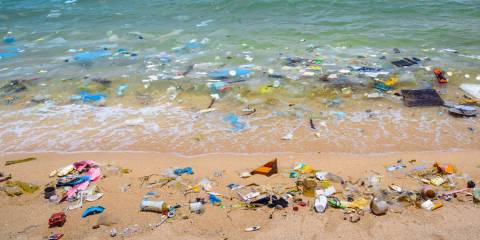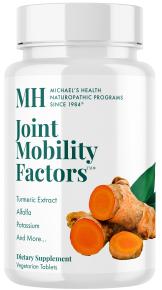In the classic film The Graduate, Mr. McGuire (Walter Brooke) gives young Benjamin Braddock (a 30-year-old Dustin Hoffman) one word of advice: “Plastics.”
There’s a “great future” in the stuff, he says. McGuire was right. There was a great future in plastics—for plastics manufacturers, not for the rest of us.
Plastics now pervade our lives in countless ways, obvious and obscure. Even more murky is the havoc they wreak on our health. Some toxic effects are known, others are suspected, and still others may go undetected.
Ways to Reduce Plastic Exposure
While you may not be able to eliminate plastics from your life entirely, there are many ways to reduce contact.
-
Avoid Plastic Containers
Make purchasing decisions based on whether or not there’s plastic involved.
- Choose produce that’s not packaged in plastic.
- Buy products (such as laundry detergent) packaged in boxes instead of plastic bottles.
- Use reusable bags for groceries.
-
Use Reusable Bottles
Avoid bottled water. Use reusable water bottles, coffee cups, and travel mugs whenever possible.
Billions of single-use plastic bottles are trashed every year.
The EPA estimates Americans dispose of 25 billion plastic foam cups annually. That's 82 cups per person a year.
-
Don't Use Plastic Straws
Talk about toxic contact—lips to plastic straw is one of the worst.
Straws are also among the most commonly found litter on beaches.
-
Avoid Plastic Cutlery
If you’re getting take-out, ask the restaurant to skip the plastic tableware or suggest they start using compostable cutlery because it’s important to you—their customer.
If you’re expecting leftovers while dining out, bring your own container from home.
-
Wear Natural Fabrics
Every time you wear and wash your clothes, tiny bits of fabric rub off, either onto you or into your washer and down the drain into the ecosystem.
Choose clothing made from natural fibers such as cotton—not plastic-based materials such as polyester.
-
Buy Cloth Diapers
The EPA estimates the typical child uses 8,000 diapers before being potty trained.
Cloth diapers reduce your child’s exposure to plastics and help the environment.
-
Use Reusable Razors
Using a razor with disposable blades versus a disposable razor will reduce plastic toxicity entering your home and the environment.






